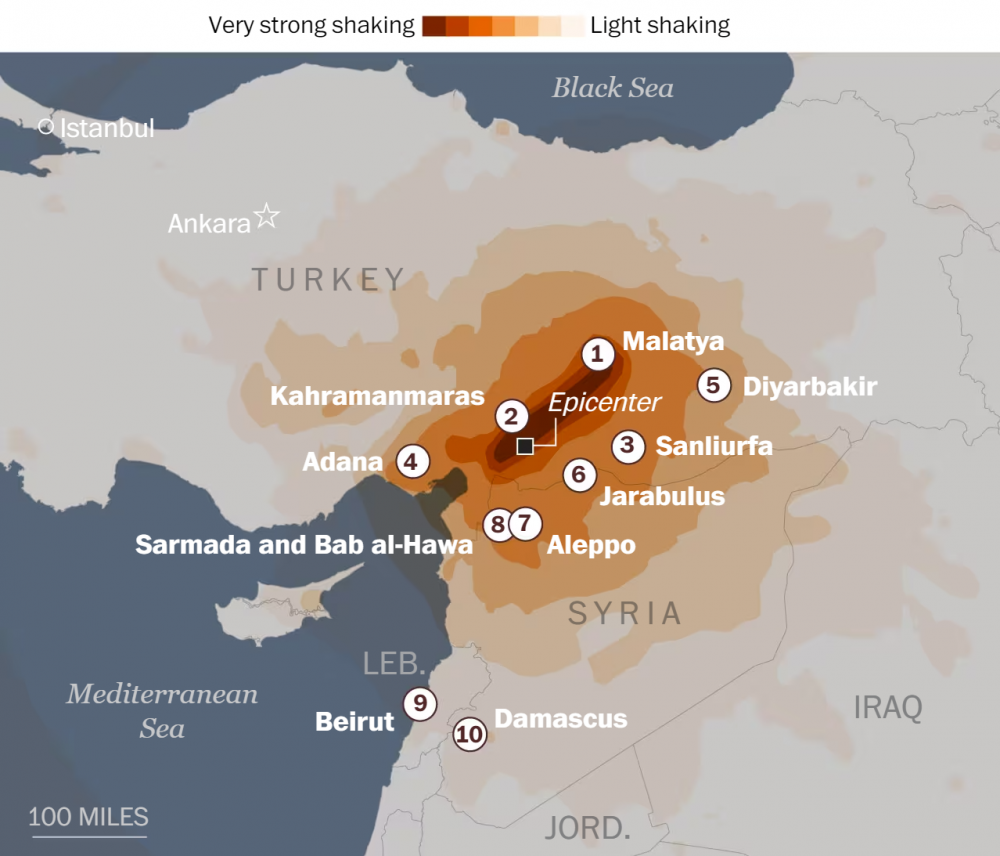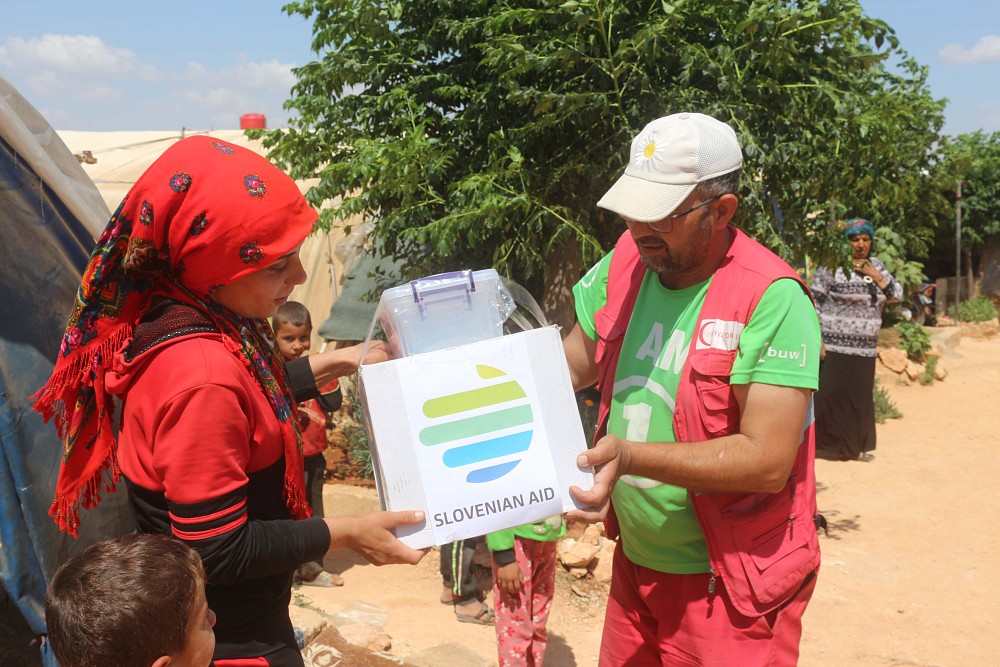Providing Aid to Vulnerable Communities Affected by Earthquake in Syria
On 6 February 2023, an earthquake struck Türkiye and Syria, affecting especially the northwestern part of the country with smaller-scale tremors affecting parts of northeast Syria. These seismic events worsened the situation in the country, causing extensive damage and displacement, rendering homes uninhabitable, and disrupting crucial infrastructure. This exacerbated the struggle of families and communities in accessing basic necessities such as healthcare and suitable shelter, further worsening the ongoing humanitarian crisis in the region.
In response, ITF, with the support of Slovenia's Ministry of Foreign and European Affairs through Slovenian Aid, in partnership with the implementing partner in the field – Kurdish Red Crescent (KRC) – swiftly intervened to address the needs of vulnerable communities. The objective was to provide essential services such as shelter, healthcare, and other non-food assistance.
When delivering aid, ITF’s implementing partner KRC faced significant challenges to reach affected areas, particularly neighborhoods of Aleppo and the Shahba region. KRC conducted assessments, procured tents, set up shelters, and supported essential infrastructure. Additionally, non-food item packages were distributed to help displaced families regain a sense of normalcy as much as possible. Ensuring safe access to healthcare facilities was also a priority, considering the displacement and the damage to healthcare infrastructure caused by the earthquake.
The initiative yielded positive results; in the last few months, and with the support of Slovenian Aid, 100 tents were set up, providing refuge for families who lost their homes. Moreover, over 1,750 individuals received vital non-food packages, consisting of blankets, mattresses, pillows, water jerry cans, solar lamps, and kitchen utensils for displaced families. With support from Slovenian Aid, at least 2,000 individuals received basic healthcare support and essential medicine. Between March and the end of July, Berxwadan and Sardam clinics conducted a total of 11,467 consultations covering emergency assistance, internal medicine, pediatrics, and obstetrics and gynecology.
Although the project has recently come to an end, its impact extends beyond immediate relief. It is a vital part of a broader strategy aimed at strengthening healthcare infrastructure and safeguarding the well-being of displaced communities over the long term. Through partnerships between various donors and partners, the project achieved comprehensive results, resonating with a broader audience, and leaving a positive, lasting impact on the lives of earthquake survivors. This effort demonstrates how compassionate action, even in the face of overwhelming challenges, may inspire hope and provide profound healing in the most affected areas.
Nevertheless, a pressing concern remains: the international community's attention for earthquake-struck communities is gradually waning, even though sustained support remains imperative for the recovery of the affected regions.





